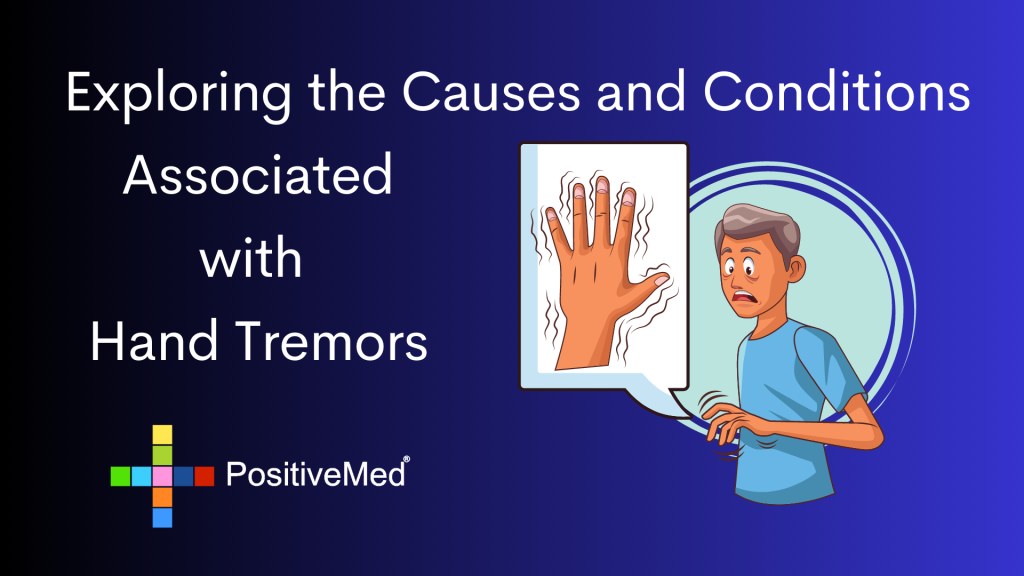
Hand tremors, or shaky hands, can be more than just a result of stress or fatigue. They can indicate underlying health conditions that require attention and treatment. Understanding the potential causes of hand tremors is crucial for addressing the issue and improving overall health. Consulting with a medical professional can help identify the underlying condition and guide you toward appropriate treatment options. Lifestyle changes and management strategies can also contribute to a better quality of life.
1. Understanding Shaky Hands:
Hand tremors involve involuntary shaking or trembling of the hands and can occur during rest or intentional movement. While occasional tremors are normal, persistent or disruptive hand tremors may be a sign of an underlying health concern. Consulting a doctor is recommended in such cases.
2. Neurological Conditions and Shaky Hands:
a. Essential tremor: The most common tremor disorder, characterized by involuntary shaking during simple tasks. Stress, fatigue, caffeine, and high body temperature can worsen the tremors.
b. Parkinson’s disease: A progressive nervous system disorder affecting movement and coordination, often starting with one hand and progressing to other limbs.
c. Multiple sclerosis: A condition that causes damage to the nervous system, leading to tremors, particularly noticeable during rest.
d. Cerebellar tremor: Slow but visible shaking that occurs after purposeful actions, often resulting from cerebellum damage due to stroke, injury, or other factors.
3. Medications and Drug Side Effects:
Certain medications, such as those for seizures, migraines, neuropathy, depression, and respiratory conditions, can induce hand tremors as a side effect. Adjusting medication dosage or switching to an alternative may help control the tremors.
4. Metabolic and Hormonal Disorders:
a. Hyperthyroidism: An overactive thyroid gland that can increase heart rate and trigger hand tremors, along with other symptoms like weight loss and light sensitivity.
b. Hypoglycemia: Low blood sugar levels can cause tremors in the hands, potentially stemming from diabetes, alcohol consumption, or inadequate nutrition.
c. Adrenal gland disorders: Rare conditions like pheochromocytoma, characterized by increased blood pressure, can lead to shaky hands sweating, headaches, and shortness of breath.
5. Anxiety and Stress:
Anxiety disorders, panic attacks, and acute stress reactions can cause hand tremors due to increased nerve activity. Managing stress through therapy, relaxation techniques, and lifestyle changes can help alleviate the tremors.
6. Alcohol Withdrawal:
Hand tremors are a common symptom of alcohol withdrawal. Severe cases may lead to delirium tremens, which can be life-threatening. Professional support, staying busy, and maintaining a positive mindset are crucial during alcohol withdrawal.
7. Essential Nutrient Deficiencies:
Deficiencies in vitamin B12 and magnesium can contribute to hand tremors. Consuming foods rich in these nutrients or considering supplements may help improve symptoms.
8. Seeking Medical Evaluation:
Consulting a medical professional is essential to determine the underlying cause of hand tremors. Diagnostic tests, physical exams, and specialist referrals may be necessary to pinpoint the specific condition and develop an appropriate treatment plan.
Living with hand tremors can be challenging, but understanding the potential causes and seeking medical evaluation is crucial for effective management. Whether the tremors stem from neurological conditions, medication side effects, metabolic disorders, stress, or other factors, proper diagnosis and treatment can significantly improve quality of life. By working closely with healthcare professionals and making necessary lifestyle adjustments, individuals can find relief and regain control over their hand tremors.





